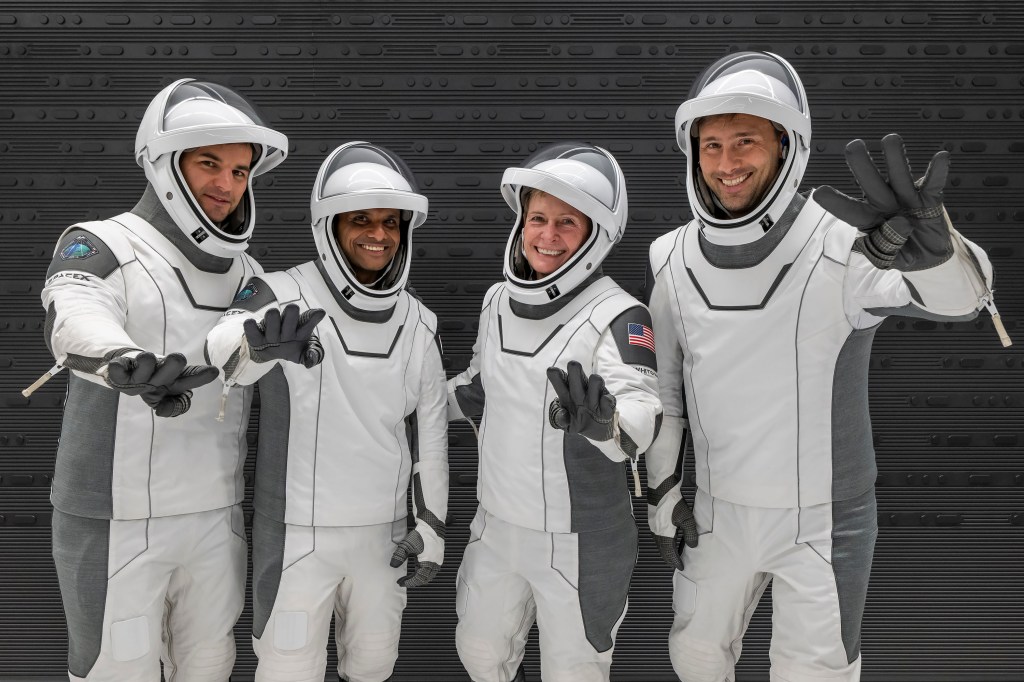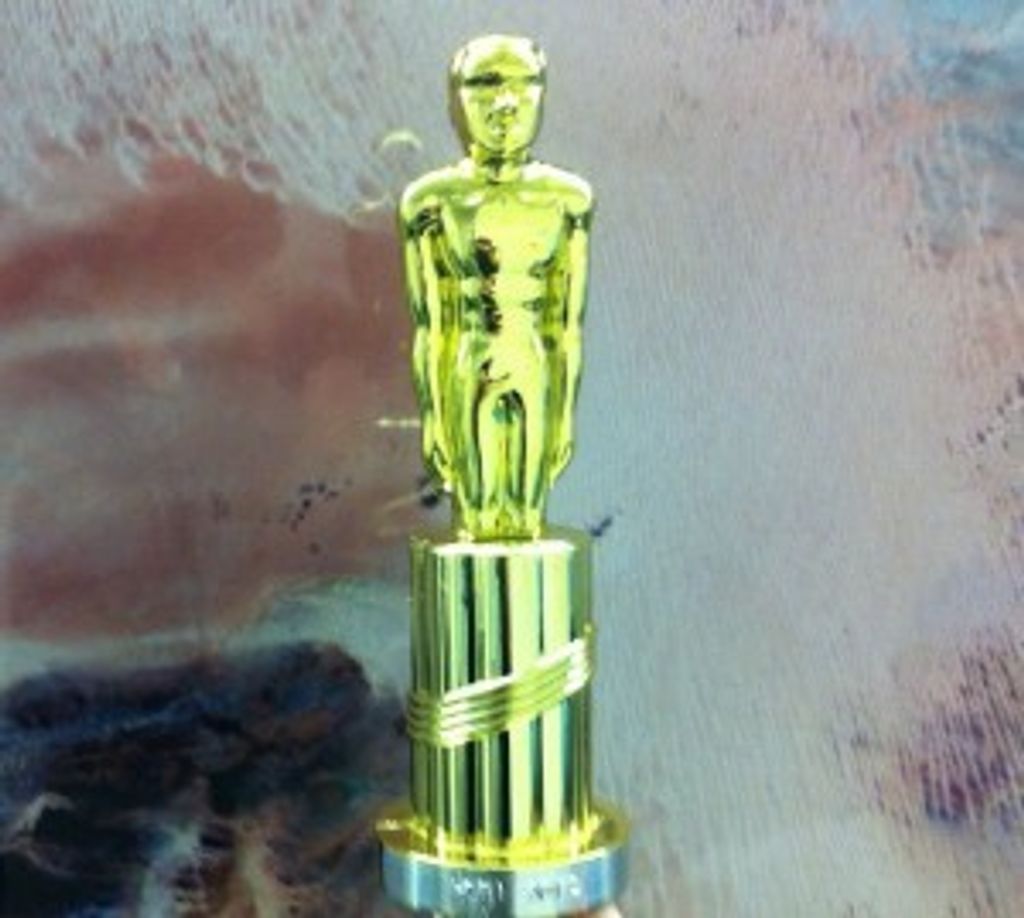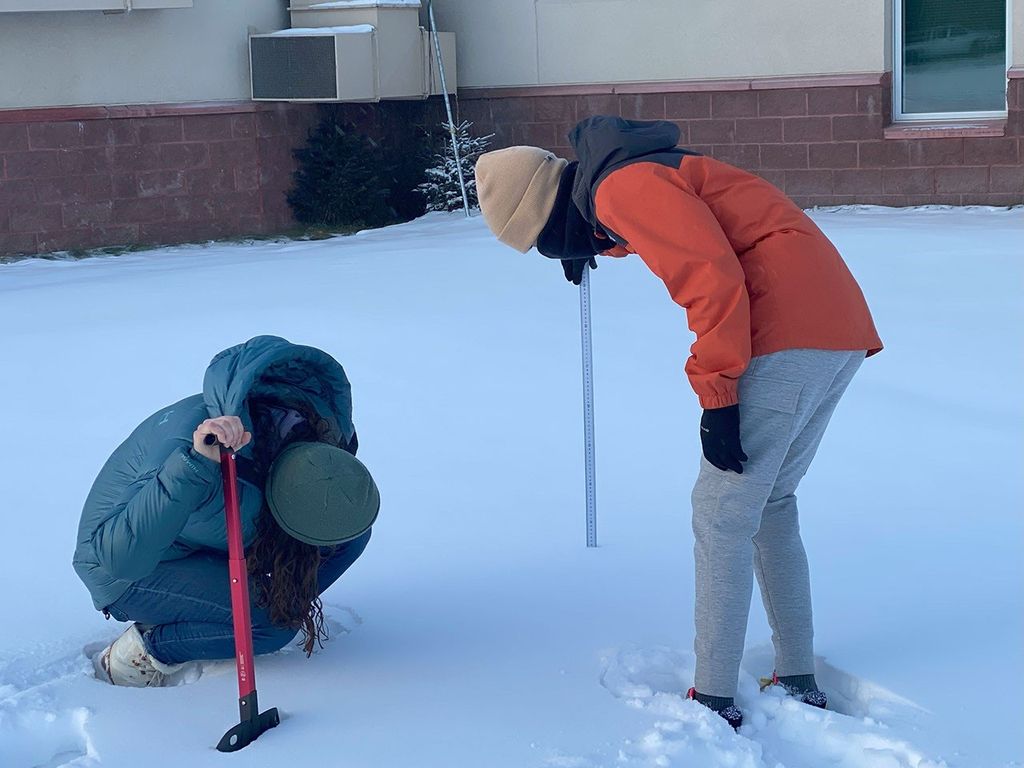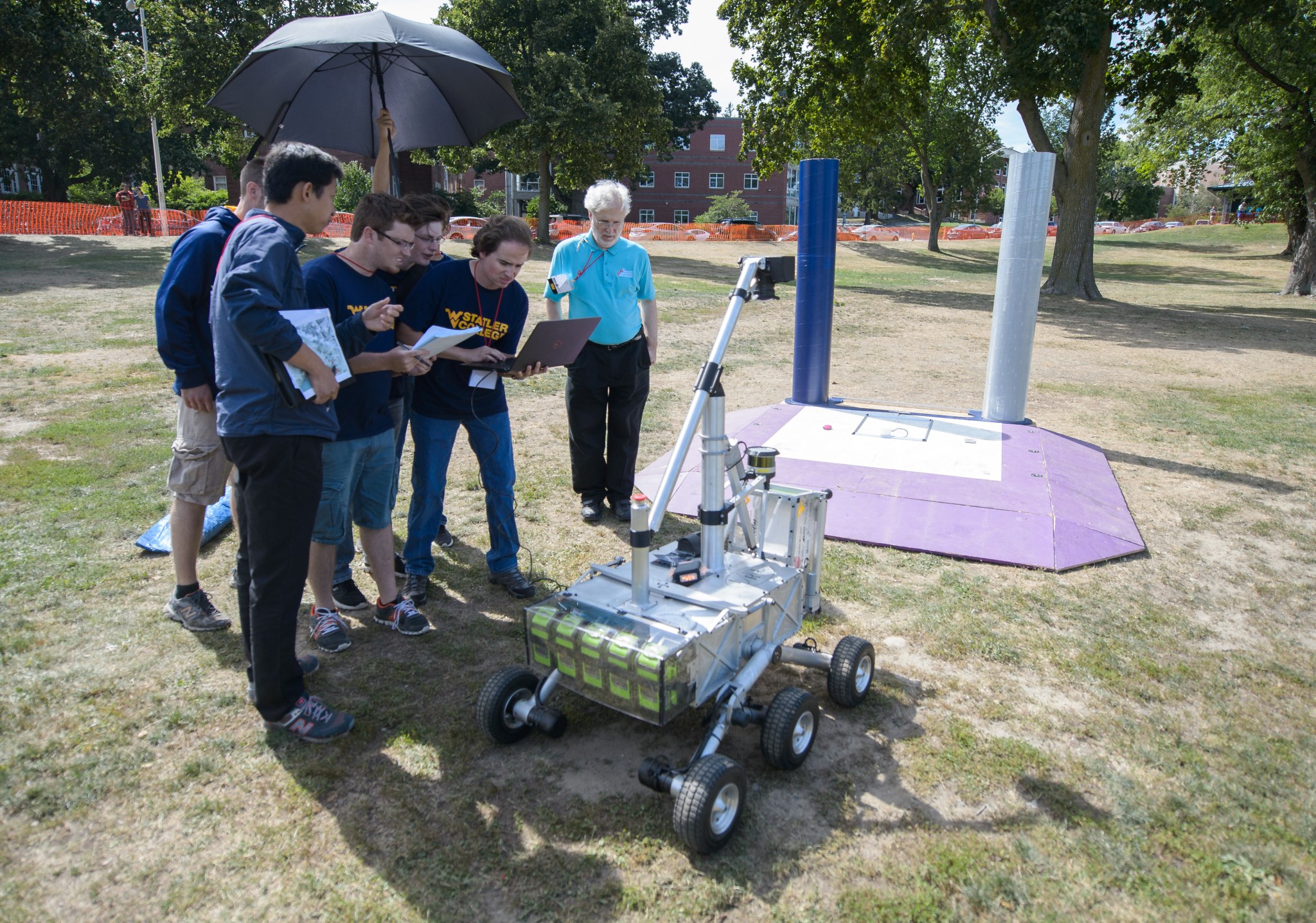After two days of intense robotics competition, the West Virginia University Mountaineers of Morgantown are taking home $750,000 — the largest prize awarded in the five-year run of NASA’s Sample Return Robot Challenge.
The competition, hosted by and held at Worcester Polytechnic Institute (WPI) in Worcester, Massachusetts, concluded with an awards ceremony officiated by NASA Administrator Charles Bolden and WPI President Laurie A. Leshin, during which Dennis Andrucyk, deputy associate administrator of NASA’s Space Technology Mission Directorate, presented the team with the prize check.
“West Virginia University has shown incredible ingenuity, creativity and team spirit throughout every stage of this challenge,” said Andrucyk. “They were committed to advancing this technology, and we are proud to say that they have done it. Every team that put a robot on the competition field brought us to this moment. We congratulate West Virginia University, and commend all of the teams for their efforts.”
This challenge was the culmination of five years of competition that began in 2012, and drew more than 50 teams. The Mountaineers, who won $105,000 in prior competitions, earned the most points in Level 2, in which the final seven teams were challenged to autonomously search for and retrieve up to 10 samples without the aid of certain Earth-based technologies. The competition field was a large park with challenging terrain, and the locations and physical characteristics of the samples were unknown to the teams. To qualify for this event, teams had to first complete Level 1, returning a single sample in 30 minutes.
“It is a thrill to see this exciting competition end on such a high note,” said Leshin. “In our role as host of NASA’s Sample Return Robot Challenge, WPI has welcomed tremendous teams of innovators to campus to compete in the past five years. These teams weren’t just working for cash prizes, they helped advance science and robotics, inspiring everyone who saw their hard work, imagination and excitement. The Centennial Challenge approach to open innovation isn’t just enabling for the future of space exploration, it contributes to making life on Earth better, too. Everyone at WPI extends their hearty congratulations to all the competitors.”
NASA’s Centennial Challenges Program uses competitions to draw citizen inventors from diverse backgrounds and disciplines to push technology forward for the benefit of space exploration. Centennial Challenges is part of the agency’s Space Technology Mission Directorate.
For more information about the competition, visit:
Footage of the Level 2 competition can be found at:
www.ustream.tv/channel/nasa-msfc
-end-
Gina Anderson
Headquarters, Washington
202-358-1160
gina.n.anderson@nasa.gov
Molly Porter
Marshall Space Flight Center, Huntsville, Ala.
256-544-0032
molly.a.porter@nasa.gov






























